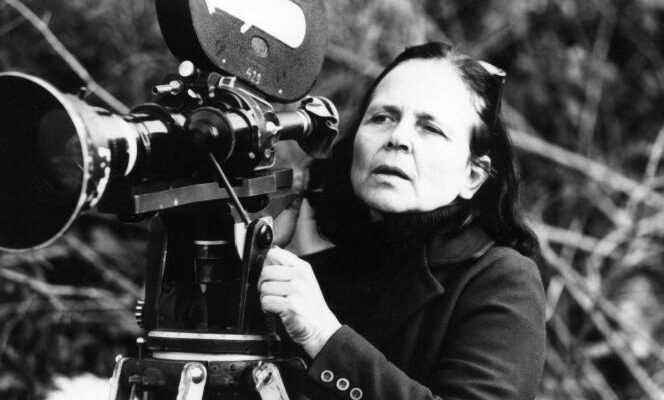The La Rochelle International Film Festival (or FEMA, for FEstival La Rochelle CinéMA), breathes, from 1er July 10, its half-century of existence during which its generous formula was refined, a cinephile feast ideally balanced between films of yesterday and today, giving pride of place to previews as well as to retrospectives. The interest of such an event is also due to its desire to extend the map of world cinema a little more each year. This edition thus contained a major surprise: four splendid films by Binka Jeliazkova (1923-2011), a Bulgarian filmmaker almost unknown in France, although twice hosted at the Cannes Film Festival – in 1974 for Poslednata duma (Their Last Word1973) and in 1981 for Golyamoto noshtno kapane (The Great Nocturnal Bath, 1980). A wonderful discovery that we owe to the Malavida distributors who have been working for twenty-five years to improve our knowledge of cinematography in the East.
Jeliazkova’s work strikes first by its imperative of lucidity, the critical and courageous glance which it poses on the company of its time. In pre-communist Bulgaria, then a high school student, she became involved in the anti-fascist resistance, within the Workers’ Youth League, which earned her exclusion and clandestinity. This experience of the maquis and the collective struggle will remain for her founding, and several of her films will retain the incandescent mark.
Antidogmatic, Jeliazkova questions the present in the light of the past and the reality of the State by burying its founding impetus
Trained at the Sofia Theater Institute, then as an assistant director on the sets of the Boyana studios, Jeliazkova, promoted to first female director in socialist Bulgaria, shot her first film, Life flows silently, in 1957, from a script by her husband Hristo Ganev, also a former supporter. In view of the result, the regime becomes disillusioned and hits the film with a ban that will last thirty years (four of its nine films will thus be wiped off the map). And we understand why, so much this formidable first attempt, which caused a scandal, stubbornly refuses to sing the praises of the young people’s republic.
In the mountains, a group of partisans fights the Nazi invader with loss and noise. In the aftermath of the revolution, the veterans reunite, but the ideal that once brought them together now seems far behind them, diluted by the new society. Disparities have widened, ties have loosened. Antidogmatic, Jeliazkova questions the present in the light of the past and the reality of the state by burying its founding impetus. She thus achieves an astonishing synthesis between the spirit of neorealism (the war calls for a deep social renewal), and the lyrical inscription associated with the cinemas of the East.
You have 45.81% of this article left to read. The following is for subscribers only.
